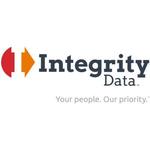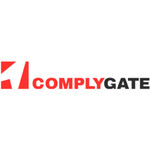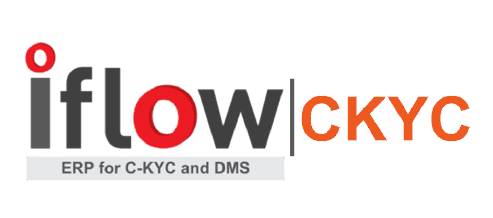Description
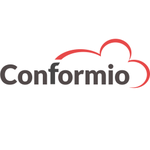
Conformio
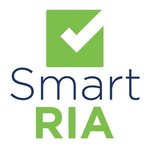
Smart RIA
Comprehensive Overview: Conformio vs Smart RIA
As of my knowledge cutoff date in October 2023, Conformio and Smart RIA are both tools designed to assist businesses in compliance management but cater to slightly different markets. Here’s a detailed overview of each:
Conformio
a) Primary Functions and Target Markets:
-
Primary Functions:
- Conformio is a compliance management tool that helps businesses streamline their ISO compliance processes, including ISO 27001, ISO 9001, and ISO 14001, among others.
- Key functionalities include project management, document management, risk management, and audit management. It automates tasks and maintains documentation necessary for ISO certification.
- Collaboration features allow team members to communicate efficiently, share documents, and track progress on compliance-related tasks.
-
Target Markets:
- Primarily targets small to medium-sized enterprises (SMEs) that need a simplified, cost-effective way to handle compliance with internationally recognized standards.
- Industries include IT services, manufacturing, healthcare, and any other sectors requiring ISO certification.
b) Market Share and User Base:
- Conformio, being a specialized tool for ISO compliance, has a smaller market share compared to broader compliance management solutions.
- It is more popular among SMEs due to its affordability and targeted functions specifically designed for ISO standards.
- The user base consists of organizations specifically looking to streamline their ISO certification processes.
c) Key Differentiating Factors:
- The primary differentiator of Conformio is its specialization in ISO standards, offering a focused set of tools for companies seeking compliance with specific ISO certifications.
- Offers a more integrated and automated approach to documentation and auditing requirements specific to ISO.
- Conformio's user-friendly interface and cost-effective pricing make it an attractive choice for smaller businesses that do not have extensive budgets for compliance tools.
Smart RIA
a) Primary Functions and Target Markets:
-
Primary Functions:
- Smart RIA is a compliance management platform specifically tailored for the financial advisory industry.
- The platform provides features such as compliance workflows, reporting tools, task management, document storage, and automated alerts and reminders to help financial advisors manage regulatory requirements.
- It offers integration with other financial tools and services, enhancing the existing technology stack of financial advisors.
-
Target Markets:
- Primarily targets Registered Investment Advisors (RIAs), broker-dealers, compliance consultants, and other financial service providers.
- Focuses on smaller to mid-sized financial advisory firms that need to stay compliant with the SEC and other regulating bodies.
b) Market Share and User Base:
- Smart RIA holds a more significant market share within the niche of financial compliance solutions compared to general compliance management platforms.
- Its user base includes independent financial advisors and small to mid-sized advisory firms who rely on Smart RIA to streamline compliance with industry-specific regulations.
c) Key Differentiating Factors:
- Smart RIA specializes in compliance for financial advisory services, providing industry-specific features that cater to the regulatory requirements faced by this sector.
- The platform’s ability to integrate with financial services technology stacks and its focus on regulatory requirements specific to RIAs set it apart from generic compliance tools.
- Provides extensive support for financial advisors to keep up with ever-evolving regulations, differentiating it from tools focused on broader compliance areas.
Comparison Summary
While both Conformio and Smart RIA are compliance management tools, they serve different industries with distinct needs. Conformio is best suited for ISO standard compliance across various industries, while Smart RIA is designed specifically for financial advisors needing to comply with sector-specific regulations. Their differentiators, market presence, and user base reflect these specializations.
Contact Info

Year founded :
2016
Not Available
Not Available
Switzerland
http://www.linkedin.com/company/conformio

Year founded :
Not Available
Not Available
Not Available
Not Available
Not Available
Feature Similarity Breakdown: Conformio, Smart RIA
Conformio and Smart RIA are both compliance management solutions designed to help organizations streamline their compliance processes, but they cater to slightly different markets and have distinct feature sets. Here’s a breakdown of their similarities and differences:
a) Core Features in Common:
-
Compliance Management: Both Conformio and Smart RIA offer tools to manage compliance requirements efficiently. They help organizations adhere to industry regulations and standards.
-
Audit Preparation and Reporting: Each platform has functionalities that assist users in preparing for audits through comprehensive reporting and audit trails.
-
Document Management: Both solutions provide a way to manage and store essential compliance-related documents, ensuring that they are easily accessible and organized.
-
Risk Assessment: Conformio and Smart RIA facilitate risk assessments to identify, analyze, and mitigate potential risks associated with compliance failures.
-
Task Management: They both offer task management features to ensure compliance tasks are assigned, tracked, and completed within deadlines.
-
User Access Control: Both platforms have user roles and permissions to ensure that sensitive information is accessed appropriately, in accordance with user roles.
b) User Interface Comparison:
-
Conformio: Typically features a user-friendly and intuitive interface with a focus on simplicity, making it accessible for users who may not be highly technical. Its design is often straightforward with clear navigation, providing easy access to compliance management tools and features.
-
Smart RIA: Known for a more robust interface, Smart RIA may be slightly more complex due to the range of features aimed at financial and investment advisors. It is designed to handle industry-specific needs, which may make it appear more detailed but potentially intimidating for first-time users.
The user interface for each solution can differ significantly depending on the specific focus area and target audience. Conformio focuses on general business compliance, whereas Smart RIA is tailored for financial advisory firms, which can influence the design and complexity.
c) Unique Features:
-
Conformio:
- GDPR-Focused Tools: Conformio often includes features specifically for handling General Data Protection Regulation (GDPR) compliance, which can be a differentiator for companies dealing heavily with European markets.
- Integrated ISO Frameworks: It may provide frameworks and templates for ISO standards, helping organizations implement these standards efficiently.
-
Smart RIA:
- Financial Industry Specific Features: Smart RIA has features specifically geared toward investment advisors, such as ADV Part 2 for filing and delivering compliance documents required by the SEC.
- Vendor Management: Offers more comprehensive tools for managing vendor relationships and compliance, an essential feature for financial firms that rely on various service providers.
Both platforms have unique features that cater to their specific target audiences, and potential users may need to consider their particular industry requirements when choosing between them.
Features

Not Available

Not Available
Best Fit Use Cases: Conformio, Smart RIA
Conformio
a) Best Fit Use Cases
Types of Businesses or Projects:
- Small to Medium Enterprises (SMEs): Conformio is particularly well-suited for SMEs that need to manage compliance with various legal, regulatory, and industry standards efficiently, such as GDPR or ISO certifications.
- Project-Based Teams: Businesses that operate on a project-to-project basis and require systematic approaches to ensure compliance across different jurisdictions and regulatory environments can benefit significantly.
- IT and Tech Firms: Companies in the tech industry, especially those dealing with data protection and IT security, would find Conformio to be a useful tool due to its emphasis on managing ISO 27001 compliance.
Scenarios:
- Compliance Management: Organizations looking to streamline their compliance processes, mitigate risks, and avoid penalties would find Conformio to be effective.
- Collaborative Workflows: Businesses that have cross-functional teams needing a central platform to handle compliance documentation and audits collaboratively can leverage Conformio’s functionalities.
Smart RIA
b) Preferred Use Cases
Types of Businesses or Projects:
- Financial Advisors and Investment Firms: Smart RIA is tailored for businesses in the financial sector, specifically registered investment advisors (RIAs) who need specialized compliance solutions.
- Wealth Management Companies: Firms managing client assets under stringent regulatory requirements will find Smart RIA provides the necessary tools to maintain compliance.
Scenarios:
- Regulatory Compliance in Finance: When a firm requires a robust solution to handle the complexities of financial regulations such as SEC compliance or FINRA requirements.
- Risk Assessment and Management: Companies needing a nuanced approach to risk management can benefit from Smart RIA's tools designed for financial risk assessment.
Catering to Different Industry Verticals or Company Sizes
Industry Verticals:
- Conformio: Industries like manufacturing, IT, healthcare, and any field where data protection and management systems need standardizations are well served.
- Smart RIA: Financial services remains the primary focus, including wealth management, financial consulting, and any financial advisory services.
Company Sizes:
- Conformio: Primarily targets small to mid-sized businesses that seek easy-to-use, comprehensive compliance solutions without the need for significant IT infrastructure investments.
- Smart RIA: Focuses more on mid-sized to larger firms within the financial sector that deal with complex client portfolios and need integrated compliance management tools to ensure every client and transaction adheres to regulatory standards.
Overall, Conformio and Smart RIA serve different verticals but share common themes of compliance and risk management, catering their offerings to suit the particular needs and operational dynamics of their respective industries.
Pricing

Pricing Not Available

Pricing Not Available
Metrics History
Metrics History
Comparing undefined across companies
Conclusion & Final Verdict: Conformio vs Smart RIA
Conclusion and Final Verdict: Conformio vs Smart RIA
When deciding between Conformio and Smart RIA, it's essential to evaluate which product offers the best overall value by considering multiple factors such as features, pricing, user experience, and support.
a) Best Overall Value
Smart RIA generally offers the best overall value for financial and investment advisory firms that prioritize compliance, reporting, and regulatory adherence. Its comprehensive feature set that caters specifically to the needs of such firms ensures that all regulatory aspects are handled efficiently.
b) Pros and Cons
Conformio:
Pros:
- User-Friendly Interface: Conformio is known for its intuitive and easy-to-use interface, making it ideal for small to medium-sized businesses without specialized compliance teams.
- ISO Compliance: Focuses heavily on ISO compliance management, providing robust tools for companies seeking ISO certification.
- Customization: Provides flexibility to adapt its features to various business needs beyond financial services.
Cons:
- Niche Usability: While strong in ISO compliance, it may lack advanced features specific to financial services compared to Smart RIA.
- Integration: May not seamlessly integrate with financial industry-specific software.
Smart RIA:
Pros:
- Industry-Specific Features: Designed explicitly for financial advisory firms, offering tools like ADV (Adviser) compliance, trade monitoring, and vendor due diligence.
- Regulatory Focus: Provides compliance resources tailored to meet regulatory requirements of the SEC and FINRA, among others.
- Analytics and Reporting: Offers robust analytics and reporting tools designed to streamline compliance auditing.
Cons:
- Learning Curve: May have a steeper learning curve for users unfamiliar with financial compliance tools.
- Cost: Might be more expensive, particularly for smaller firms or those not needing extensive compliance features.
c) Recommendations for Users
For businesses focused on ISO certification and seeking a general-purpose compliance tool that’s easy to use and customize, Conformio might be the better choice. It allows for broader application across various industries and business functions.
In contrast, if your organization operates primarily within the financial services space, particularly if compliance with SEC and FINRA regulations is critical, Smart RIA would likely provide a tailored solution with robust support for industry-specific needs.
Specific Recommendations:
- Conduct a detailed requirements analysis based on your business type and regulatory needs.
- Consider trialing both products if available or request demos to better understand their fit within your existing processes.
- Evaluate the potential return on investment by considering not just the initial cost but also the long-term benefits of streamlined compliance and reduced risk of regulatory penalties.
Ultimately, the decision should align with your firm’s specific compliance priorities and the operational efficiencies each tool can provide.
Add to compare
Add similar companies
